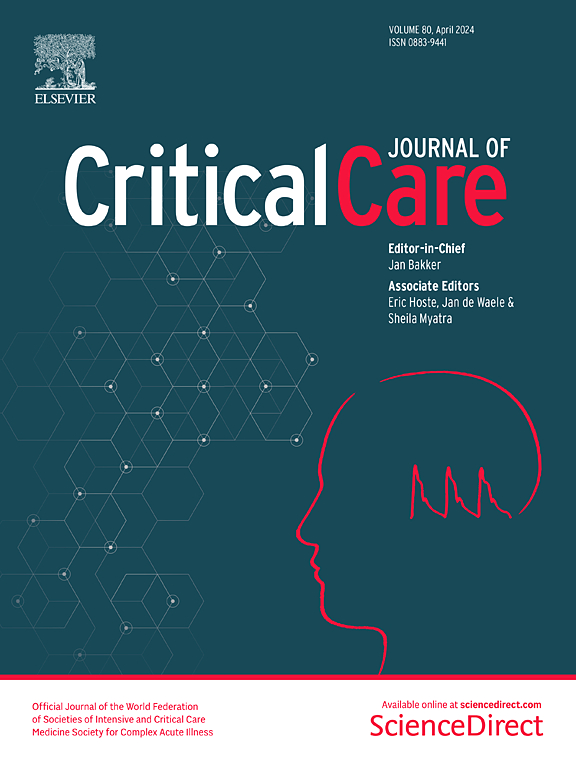Heterogeneity of treatment effect: the case for individualising oxygen therapy in critically ill patients
IF 8.8
1区 医学
Q1 CRITICAL CARE MEDICINE
引用次数: 0
Abstract
Oxygen therapy is ubiquitous in critical illness but oxygenation targets to guide therapy remain controversial despite several large randomised controlled trials (RCTs). Findings from RCTs evaluating different approaches to oxygen therapy in critical illness present a confused picture for several reasons. Differences in both oxygen target measures (e.g. oxygen saturation or partial pressure) and the numerical thresholds used to define lower and higher targets complicate comparisons between trials. The duration of and adherence to oxygenation targets is also variable with consequent substantial variation in both the dose and the dose separation. Finally, heterogeneity of treatment effects (HTE) may also be a significant factor. HTE is defined as non-random variation in the benefit or harm of a treatment, in which the variation is associated with or attributable to patient characteristics. This narrative review aims to make the case that such heterogeneity is likely in relation to oxygen therapy for critically ill patients and that this has significant implications for the design and interpretation of trials of oxygen therapy in this context. HTE for oxygen therapy amongst critically ill patients may explain the contrasting results from different clinical trials of oxygen therapy. Individualised oxygen therapy may overcome this challenge, and future studies should incorporate ways to evaluate this approach.求助全文
约1分钟内获得全文
求助全文
来源期刊

Critical Care
医学-危重病医学
CiteScore
20.60
自引率
3.30%
发文量
348
审稿时长
1.5 months
期刊介绍:
Critical Care is an esteemed international medical journal that undergoes a rigorous peer-review process to maintain its high quality standards. Its primary objective is to enhance the healthcare services offered to critically ill patients. To achieve this, the journal focuses on gathering, exchanging, disseminating, and endorsing evidence-based information that is highly relevant to intensivists. By doing so, Critical Care seeks to provide a thorough and inclusive examination of the intensive care field.
 求助内容:
求助内容: 应助结果提醒方式:
应助结果提醒方式:


